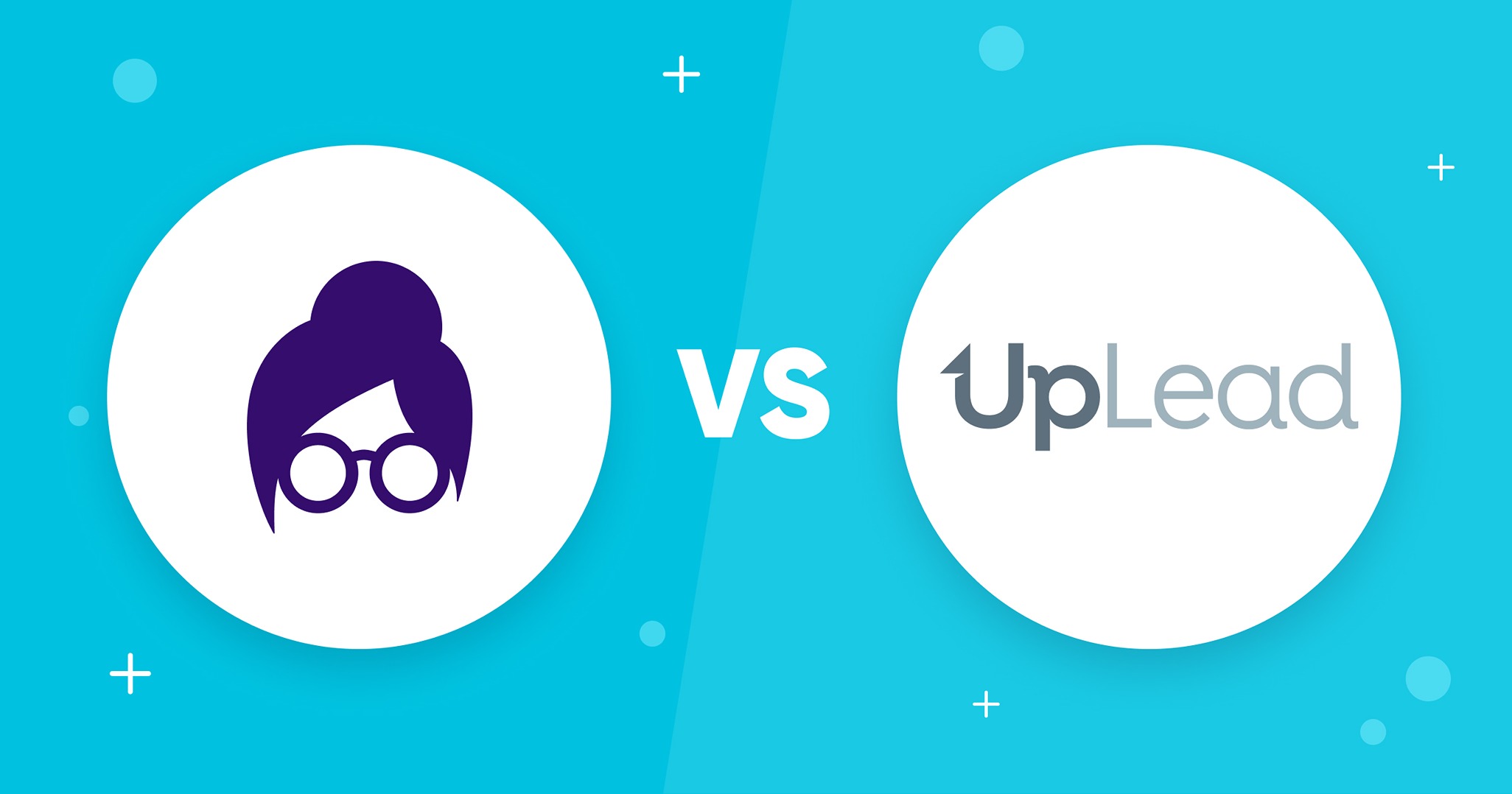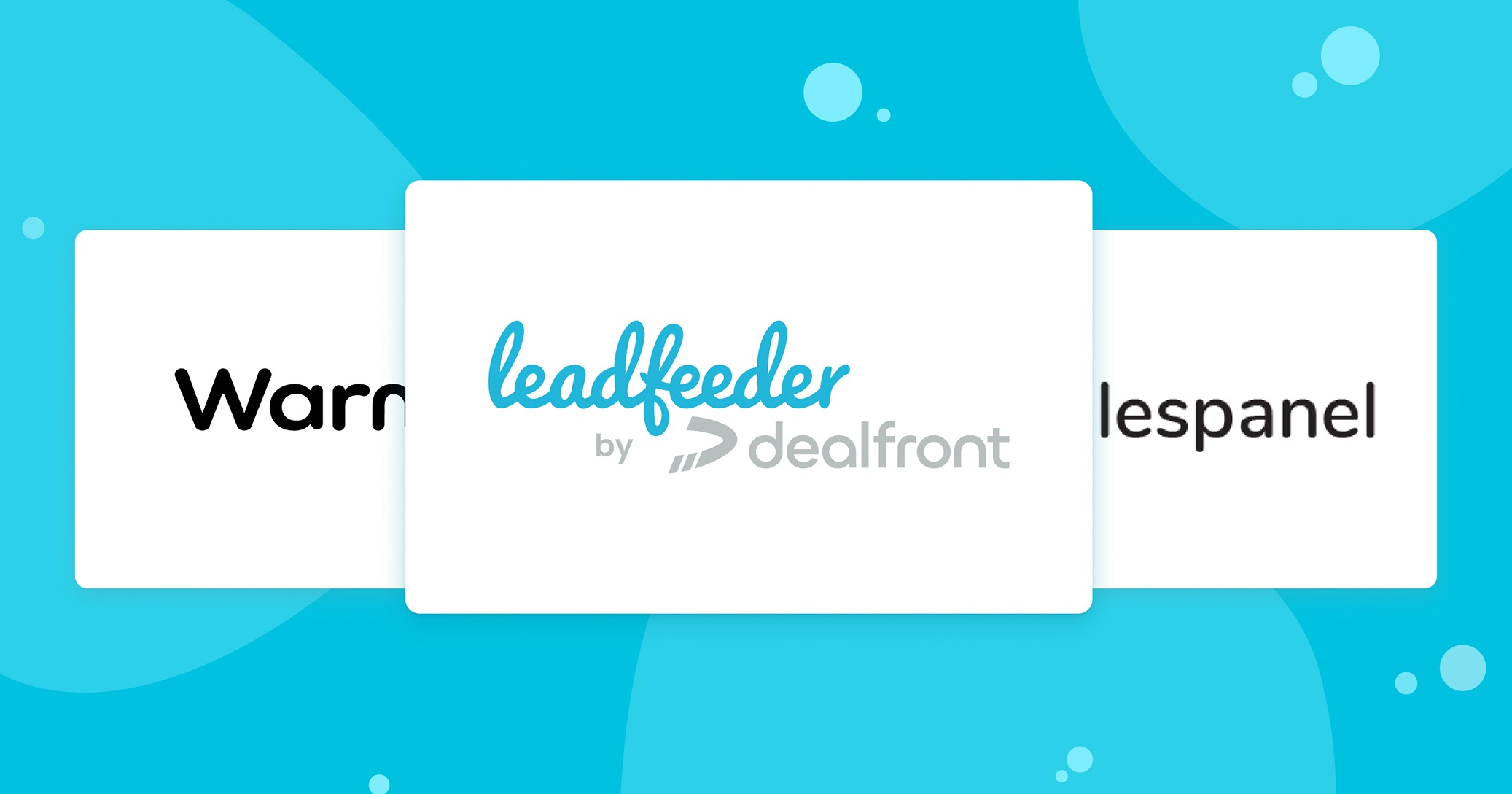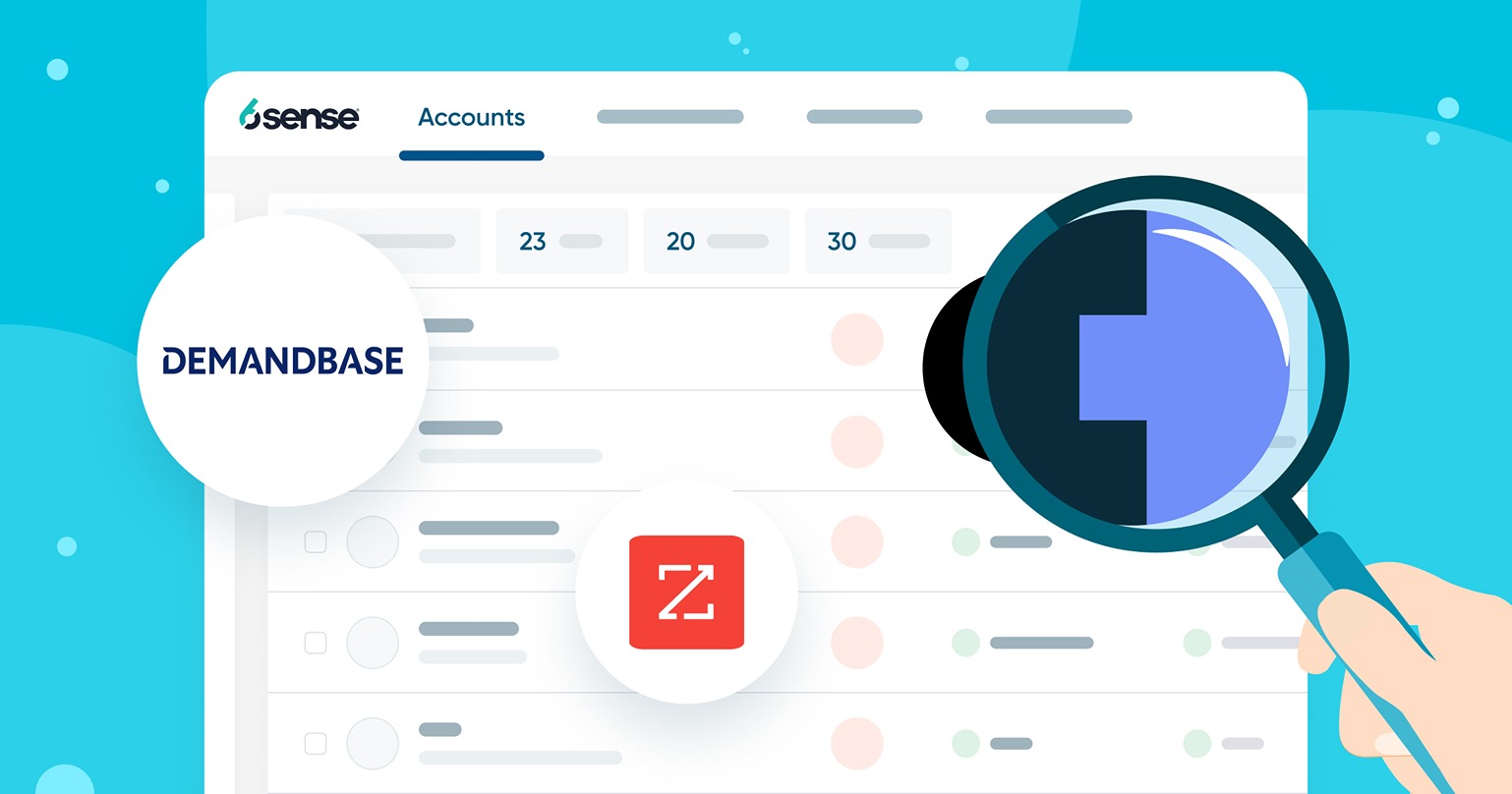No matter the size of your business, choosing the right sales intelligence tool is essential. From otpimizing pipelines to enhancing lead gen efforts, these tools are a vital piece of a sales or marketing team’s strategy.
In this guide, we’ll examine two well-known platforms: 6sense and Cognism. Both are popular tools, each with a different focus (and inherent pros and cons). We’ll also examine features, pricing, integrations, and so much more to help you decide which tool might be right for you.
What is 6sense?
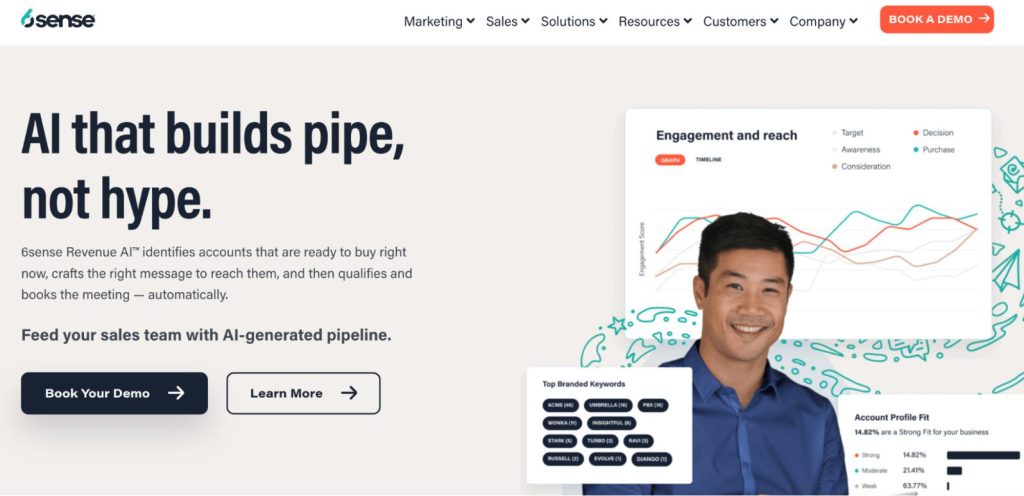
To get us started, let’s take a look at 6sense. 6sense is a powerful lead generation tool focusing on AI capabilities to enhance predictive analytics. The platform is tailored to teams that use account-based marketing strategies. Known for analyzing customer behaviors and tracking customer intent using numerous data points, 6sense does a good job of helping teams identify accounts that are more likely to convert.
6sense is a good choice for teams that like to lead with data in their sales and marketing strategies and, of course, those that already use account-based marketing tactics. The robust database has over 400 million individual contacts and over 60 million business contacts.
What is Cognism?
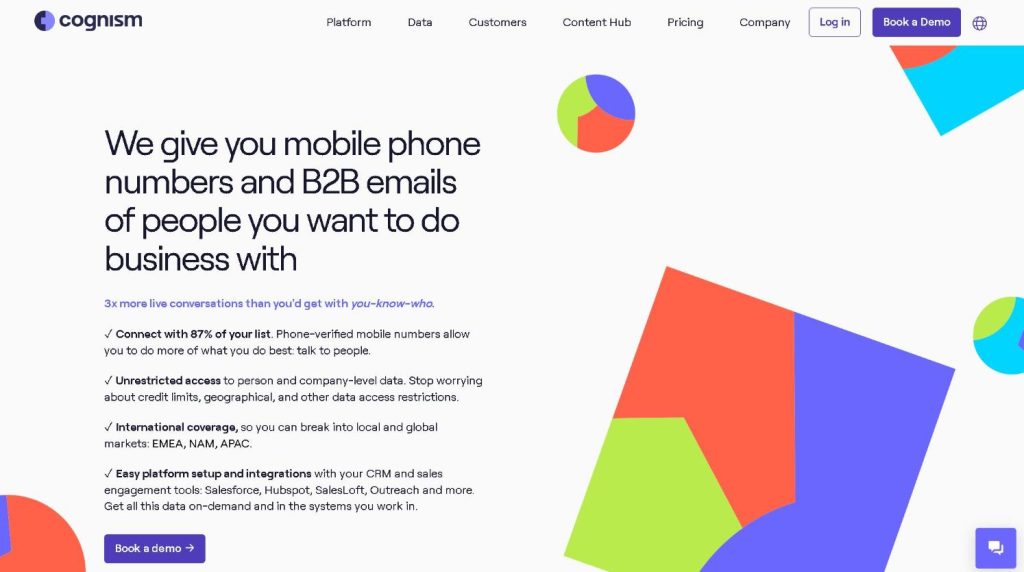
Comparatively, Cognism is a leading lead generation and data enrichment tool that focuses on providing high-quality lead data. Specializing in B2B data, Cognism offers users access to verified data and a streamlined user experience. Data is updated in real time to ensure accuracy.
If your team is solely focused on building lists of leads, Cognism may be a good choice. The platform and capabilities are targeted at small—to medium-sized businesses.
Key Differences Between 6sense vs. Cognism
There are a few key differences between 6sense and Cognism, from target users to pricing. Let’s take a look at the primary differences to help you choose the right tool for your business.
The main differences between 6sense and Cognism are data features, the target audience, and integration capabilities.
- Data Features: 6sense is focused on providing predictive analytics and buyer intent data, enhanced by AI. This helps businesses understand where businesses are in the sales funnel. Cognism is focused on accurate, real-time contact data for simple and streamlined list building.
- Target Audience: As we’ve mentioned, 6sense’s target audience is businesses that are already leveraging account-based marketing tactics. This is a more common approach with larger businesses with more complex sales needs. Cognism was designed with small to medium-sized businesses in mind, providing data enrichment and simple lead generation tools.
- Integration Capabilities: While both tools offer a solid set of integration options, it seems that 6sense has more advanced integration capabilities, which we will explore later in the article.
6sense vs. Cognism Comparison Table
Here’s a side-by-side view of how 6sense and Cognism stack up.
| 6sense | Cognism | |
| Use Cases | Account-based marketing, lead scoring | Lead generation, data enrichment |
| Database Size & Reliability | Over 400 million individual contacts and more than 60 million business contacts | No clear numbers, but claims to be hundreds of millions of contacts |
| Data Enrichment Features | Predictive data and intent tracking | Real-time data verification |
| Lead Management | High-level lead scoring and segmentation | Robust contact data for outreach |
| AI Features | Strong AI-driven insights across the platform | Limited AI features |
| Integrations | CRM, marketing tools, open API capabilities | Primarily focused on CRM tools and email platforms |
| Ease of Use | Moderate learning curve copmpared to Cognism | Simple and intuitive |
| Compliance | Compliant with major global data standards | Compliant with major global data standards |
| Browser Extension | Yes | Yes |
| Free Access? | No free plan – offers a demo and tailored pricing based on business needs | No free plan – offers a demo and tailored pricing based on business needs |
Comparing Key Features of 6sense vs. Cognism
We’ve highlighted the differences between the two tools and reviewed them in a side-by-side table. Let’s examine the key features of 6sense and Cognism.
6sense Core Features

- Predictive Analytics: 6sense uses AI for enhanced data enrichment and predictive analytics, giving users a good sense of where potential leads are in the sales funnel. 6sense leans on numerous datapoints to generate a score for each lead, turning those datapoints into fairly accurate intent scores.
- Lead Scoring: Which brings us the next key feature – lead scoring. Each lead is ranked based on the likelihood of conversion, giving teams a targeted list of accounts to focus on first. The data and scoring isn’t perfect, but gives a good guide for teams to get started.
- Account-Based Marketing Tools: If your team already uses account-based marketing tactics, 6sense may be the way to go. The platform focuses on serving up account details that are ready to convert.
Cognism Core Features
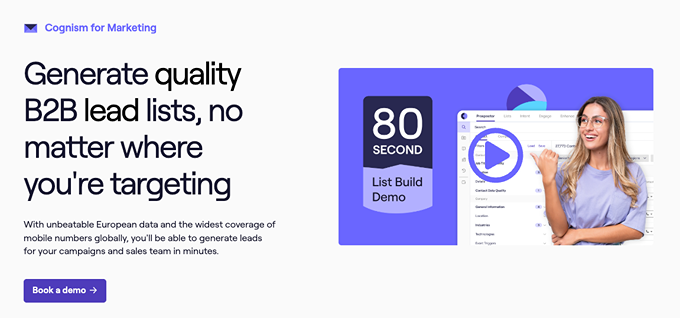
- Real-Time Data Verification: What helps set Cognism apart from 6sense and many other B2B databases is its real-time verification efforts. While it isn’t 100% accurate, the real-time verification and update is a crucial feature for any sales team – nobody wants outdated contact details.
- Lead Generation Focus: Cognism focuses on traditional lead generation, while 6sense leans into account-based marketing. If you’re looking for simple, intuitive list building, Cognism may be the way to go.
Both tools offer solid features—6sense has impressive AI and data features, while Cognism aims to provide accurate, real-time data for every contact.
Database Source, Size & Contact Quality
A tool is only as good as its database – here’s what you should know about both 6sense and Cognism’s databases.
6sense Data
6sense has a little over 400 million individual contacts and 65 million company contacts. Offering excellent global coverage, the size of 6sense’s database is great for businesses of all sizes.
However, without an apparent published accuracy rate, it can be hard to tell how high-quality the data is. 6sense states there is a triple verification process, but it’s unclear how accurate the data truly is. Similar to most major databases, in terms of data points, you’ll see emails, phone numbers, name details, and general company information.
Cognism Data
Cognism doesn’t outwardly state how large its database is in pure numbers, but generally says there are hundreds of millions of contacts in the database. Data is updated and verified real-time, but as we’ll see in the review section, it may not be as accurate as it states.
Cognism data is standard, meaning you’ll get names, emails, phone numbers, and general company information.
Pricing of 6sense vs. Cognism
We’ll keep this section short and sweet. Neither platform publishes pricing directly on the site, and it’s a bit unclear when searching online elsewhere. Here’s what we do know about pricing for 6sense and Cognism.
6sense Cost
When searching for 6sense pricing, it can vary widely – we’ve seen estimates between $50,000 and $120,000 annually, which can be impacted by a number of variables. Compared to platforms that use a credit-based or per-user pricing structure, this pricing isn’t attainable for most small businesses and a number of medium-sized businesses.
Cognism Cost
Similar to 6sense, Cognism doesn’t outwardly publish pricing, but review sites put pricing around $20,000 to $100,000 annually. While a bit more affordable than 6sense, the platform is still pricey compared to other platforms.
Integration & API Comparison
Whether you have only a few other tools or an entire tech stack to consider, integration and API capabilities are an important factor when choosing your following sales intelligence tool.
Integrating with 6sense
6sense offers a wider range of integration opportunities, namely with API options. The open API capabilities allow you to integrate with in-house systems, which is a significant win when compared to Cognism. It also allows you to integrate directly with many popular CRM platforms and other sales and marketing tools with just a few clicks.
Integrating with Cognism
Cognism provides an impressive list of integration capabilities with CRM tools and email platforms. However, it falls short with no API options, meaning you’re restricted to existing integration capabilities with third-party tools and cannot integrate with in-house platforms.
6sense vs. Cognism Ease of Use
Ease of use is often just as important as pricing and data accuracy, so let’s see how easy each platform actually is to use.
6sense Implementation
While 6sense itself isn’t an inherently difficult tool to understand, when compared to Cognism, it’s materially more difficult. It has a wide range of powerful tools and features that users may need to spend time learning. Because of its complexity, implementation can take longer than Cognism.
Implementation and ongoing support is provided by a dedicated account manager. You’ll get dedicated implementation support, onboarding, and ongoing support and training. On-demand training resources are available to team members and a dedicated contact for more complex issues.
Cognism Implementation
Similar to 6sense, Cognism requires dedicated implementation time, although it is typically quicker to implement than 6sense. In terms of ongoing support, Cognism has a robust library of support and training, an AI chatbot, as well as live support. There is an option to submit a help request via a form on the site.
Overall, Cognism is the more straightforward platform to use.
What People Are Saying: Reviews of 6sense vs. Cognism
We’ve looked at review sites like G2 and Reddit to compile what customers say about both 6sense and Cognism.
6sense Reviews
6sense users note the extensive AI features positively. There are consistently high scores for features like ABM capabilities and its predictive insights. Users like the data enrichment and intent data to help predict accounts further along in the sales funnel.
Where 6sense falls short is in the longer implementation time, lack of transparent pricing, and learning curve for some of the more advanced features. At the time of writing, users give 6sense a 4.3 out of 5 stars.
Cognism Reviews
Cognism scores slightly higher than 6sense, and at the time of writing, sits at 4.6 out of 5 stars on G2. Many users note that the platform is easy to use and appreciate the simple, intuitive platform. Users also note that the integrations work well, although they’re not as expansive as what 6sense has to offer.
Interestingly, a number of users state that the data is out of date and inaccurate. Thus, the 98% data accuracy claim may not be entirely accurate.
6sense vs. Cognism: The Bottom Line
Choose 6Sense For Powerful AI Enhancements and Predictive Data
It’s clear that 6sense is a tool with robust data in mind. With predictive analytics, intent data, and lead scoring, teams can get ahead and reach out to accounts that are ready to buy. If you’re a larger sales team (likely with a larger budget for sales intelligence tools), 6sense may be a good option for you. AI is the way of the future, and 6sense is one of only a handful of tools leaning into this exciting technology.
Choose Cognism For Simplicity and Accuracy
If you’re a small to medium-sized business looking to get up and running with a sales intelligence tool quickly, Cognism may be a better fit for you. Focusing on simplicity and data accuracy, Cognism offers core features that you’ll find with most lead generation tools, all in a streamlined interface.
Skip the Stress & Choose UpLead Instead
If you’re unsure if 6sense or Cognism is right for you, it’s time to consider UpLead. With high-quality B2B contact details, a robust lineup of tools and features, and seriously affordable pricing, you can’t go wrong. With UpLead, you can start generating high-quality leads in just a few clicks. Sign up for your free trial today!
FAQs About 6sense vs. Cognism
Here are some common questions and answers about 6sense vs Cognism.
If you’re looking for a simple, affordable tool to help with lead generation, Cognism may be a good option for you. However, UpLead offers powerful tools, accurate data, and enhanced features at simple pricing.
Aside from Cognism, other major competitors include ZoomInfo and Demandbase. Both tools offer predictive analytics and account-based marketing features.
With real-time data updates and verification, Cognism claims a 98% accuracy rate.
Cognism is a privately owned company founded by James Isilay and Stjepan Buljat – it is not publicly traded.
What You Need to Remember About 6sense vs Cognism
6sense and Cognism are fairly different tools. While they both allow users to generate leads and verify contact details, they are targeting two separate customers. 6sense targets teams that use account-based marketing methods and want enhanced data and AI features. Cognism targets smaller teams that want quick, accurate lead results. Remember – UpLead is an ideal alternative to both 6sense and Cognism!

